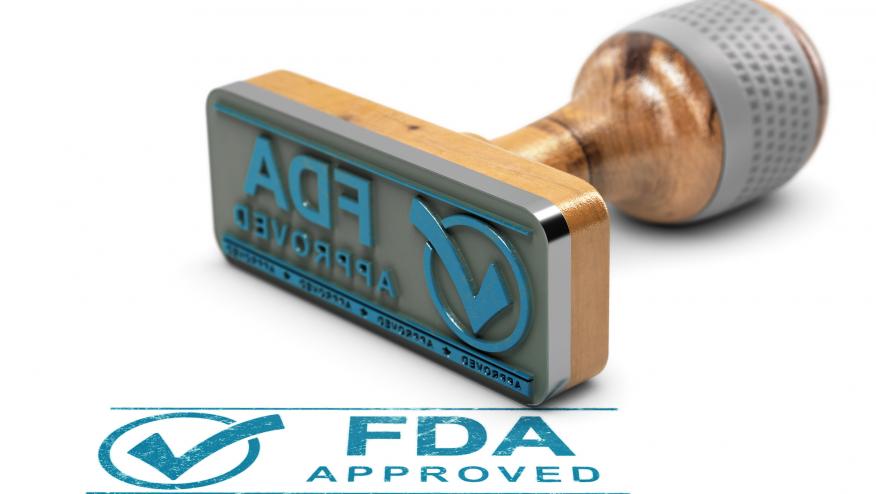FDA Approves Avacopan for ANCA-Associated Vasculitis Save

October 8, 2021 the U.S. Food and Drug Administration (FDA) approved avacopan (trade name: Taveneos), an oral complement 5a receptor inhibitor, as an adjunctive treatment of adult patients with severe active anti-neutrophil cytoplasmic autoantibody (ANCA)-associated vasculitis). It is intended to be used in combination with standard therapy in the treatment ofgranulomatosis with polyangiitis (GPA) and microscopic polyangiitis (MPA).
FDA approval follows an extensive review by the Arthritis Advisory Committe in May 2021 wherein the results of the phase III ADVOCATE trial showed that avacopan was equivalent to corticosteroids. The study included 330 AAV patients who received avacopan, 30 mg twice daily, or a 20-week prednisone taper (while on background rituximab or cyclophosphamide). At week 26 avacopan was found to be noninferior to the prednisone taper (remission: 72% with avacopan vs. 70% given prednisone). While the study was noninferior (but not superior) at week 26, the extended study results showed avacopans superiority to a prednisone-based standard of care with respect to sustained remission at 52 weeks.
The manufacturer (ChemoCentryx) noted that this is the first FDA approved orally-administered inhibitor of the complement C5a receptor.
The most common adverse reactions (≥5% of patients and higher in the TAVNEOS group vs. prednisone group) were: nausea, headache, hypertension, diarrhea, vomiting, rash, fatigue, upper abdominal pain, dizziness, blood creatinine increase, and paresthesia.
Avacopan in Europe is pending a regulatory decision from the European Medicines Agency (EMA) by the end of 2021.
- Dose: 30 mg (three 10 mg capsules) twice daily
- Indications: adjunctive treatment of adult patients with severe active ANCA-associated vasculitis (including GPA and MPA) in combination with standard therapy including glucocorticoids. (Taveneo use does not eliminate glucocorticoid use)
- Warnings
- Hepatotoxicity: Increase in LFTs occurred in clinical trials. (check LFTs before and monitor)
- Angioedema occurred in a clinical trial.
- Hepatitis B Virus (HBV) Reactivation possiblilty (test for HBV)
- Serious Infections: Avoid in patients with active, serious infection, including localized infections
- Adverse reactions: The most common adverse reactions (≥5%) are: nausea, headache, hypertension, diarrhea, vomiting, rash, fatigue, upper abdominal pain, dizziness, blood creatinine increased, and paresthesia.










If you are a health practitioner, you may Login/Register to comment.
Due to the nature of these comment forums, only health practitioners are allowed to comment at this time.